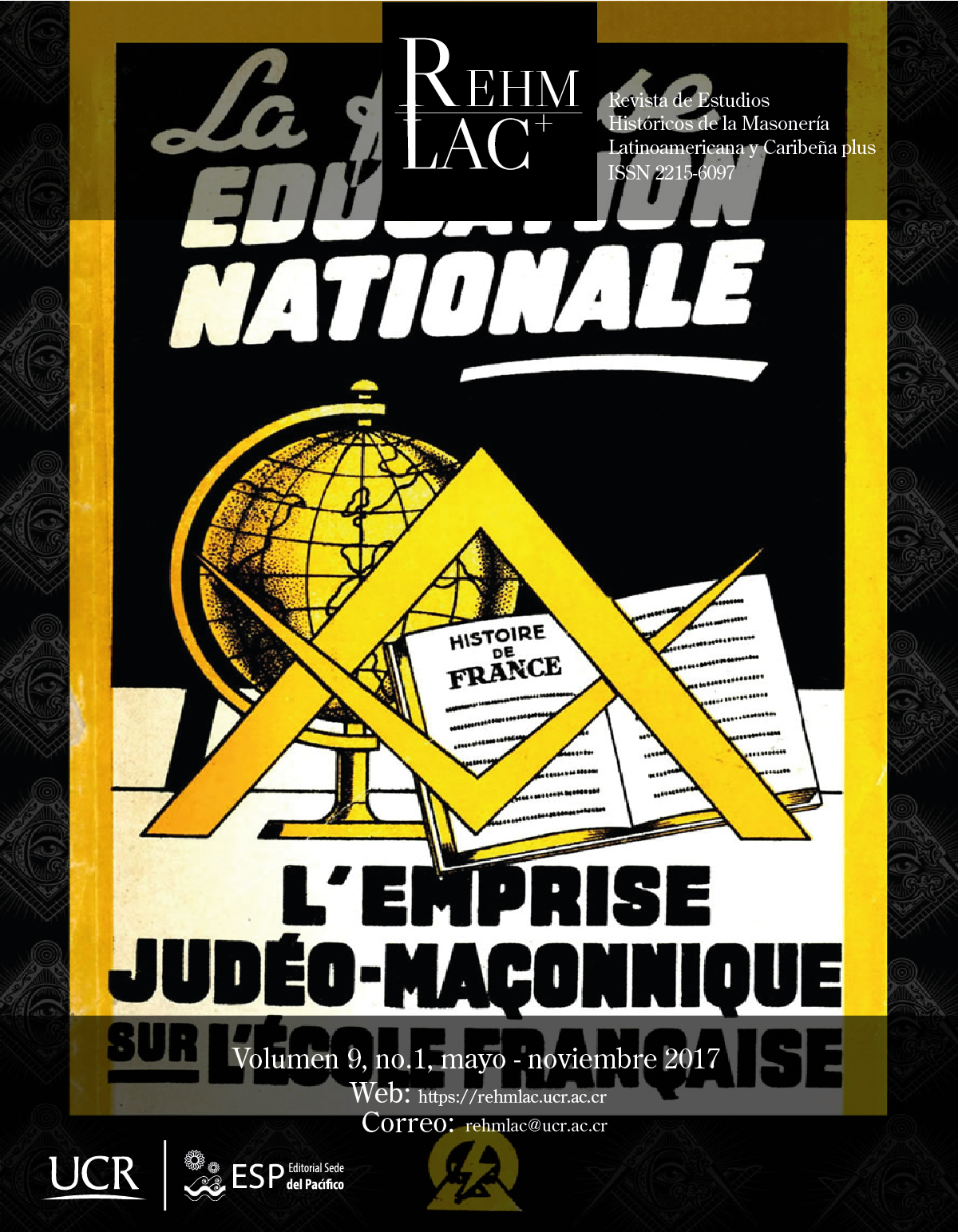Abstract
From 1870 to 1900, education in Costa Rica experienced a slow growth in the number of schools, increased literacy rates and tried to expand without gender and socioeconomic discrimination since school attendance was compulsory and free of charge. The state of Costa Rica’s education project sought secularization and the education of its citizens within in a process of appropriation of the ideals of modernity. This happened at the same time as the development of research centres, scientific, literary and patriotic societies, theatres and sanitation campaigns. This state’s vision coincided with a Freemasonic/masonic vision. From a prosopographical analysis we propose the following hypothesis: The participation of educators in Costa Rica’s Freemasonry also belonged to the Institución Libre de Enseñanza ( ILE), a secular educational institution based on Krausism, Positivism and Rationalism. Their belonging to both institutions was due to the lodge’s principle of freedom of speech at a time when liberalism was at the fore front of the country’sComments
Downloads
Download data is not yet available.


